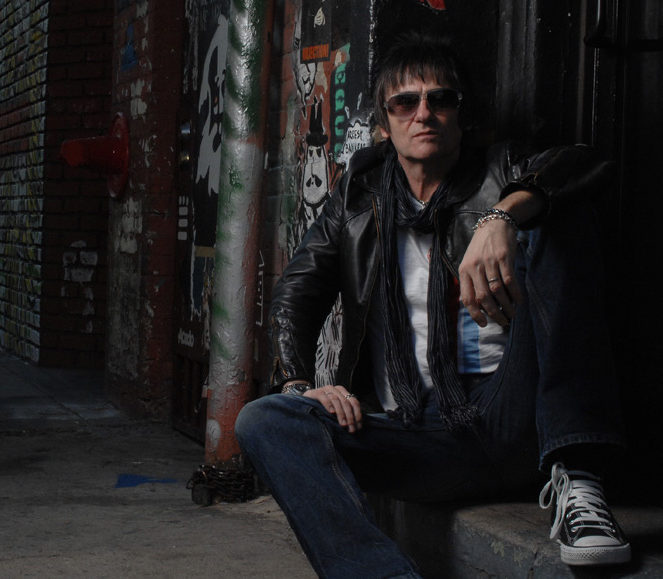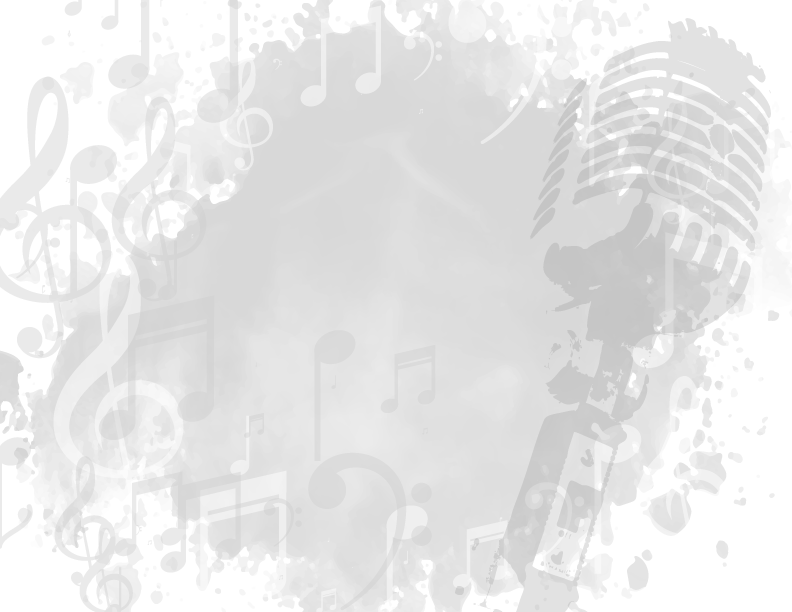Finger On The Triggers: A Conversation with Mark Loughman
“I can’t go to the cinema, because people there like to chew. They sip soda, that’s what they do.”
“Hearing knives on a plate can make me lose my mind.”
Harsh as these phrases may sound, they ring 100 percent true for thousands of sufferers of a condition called “misophonia,” or the “hatred of sound.”
Think of someone scratching his or her fingernails on a chalkboard, and the goosebump-inducing sensation it brings with it. Think of the unsavory sounds of someone chewing food — with his or her mouth open. Or think of any sounds — a.k.a. “triggers” — that irritate the hell out of you. Most of the triggers can be brushed off as simple irritants and cause little or no physical reaction. For other people, however, these same sounds have a more ominous effect.
One of these people is Mark Loughman, a Manchester, England-born singer/songwriter.
After learning about the condition, and coming to the realization that he, himself, had it, Loughman did what all good artists do — write and release a song (his latest single, “My Misophonia”) accompanied by a hilarious music video co-directed by Daniel Christiansen about the trials and tribulations of living with misophonia.
“If I hear you swallowing, well, I’m going to have to walk away.”
“I hear tapping on a glass, I wanna take my knife and ram it down my throat.”
In his typical British-style humor, Loughman attempts to give the listeners a tiny glimpse into what the world of misophonia sounds like to a sufferer, by adding the sounds of straw-sipping, lip-smacking, and other misophonia triggers to the end of the track.
Loughman’s ultimate goal with the track is to tap into the power of solidarity. In addition to empowering others with misophonia, he hopes his tune will help people around him empathize.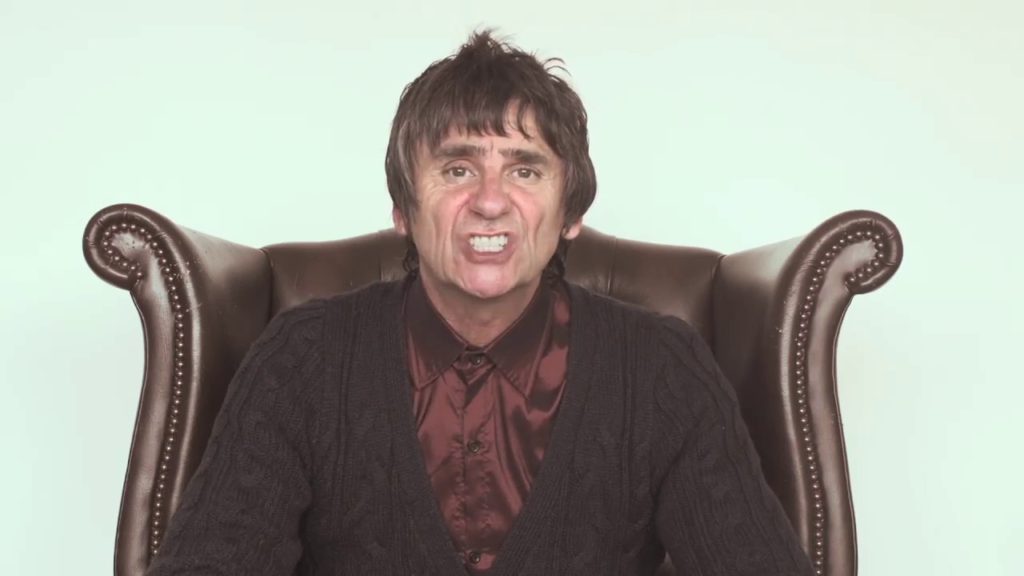
“The song has really helped already,” he says. “I’ve had people who have known me for 20 or 30 years reach out and say, ‘Wow, Mark, I always just thought you were an oversensitive jerk!’ So with the song I can just turn it around and say, ‘Look, here’s what I’m living with and I can manage it,’ ”
Loughman, a real-life rags to riches story himself, having come to the United States in 2000 nearly penniless, only to eventually work his way to becoming the owner of BAE Audio in North Hollywood, California, spoke with ListenIowa recently to discuss his misophonia, busking, and the artistic freedom that owning his own studio affords him.
“My Misophonia” is your tongue-in-cheek take on a condition that many people have to varying extents and may not even know it. Pardon the pun, but what triggered you to write about it?
Any influence in your life, if you’re creative, you’ve got to make the most of it, and that’s what I did with this and thought, “There’s a song in there somewhere.” Over a period of time, I got the lyrics together and came up with the melody. It kind of wrote itself. All I needed was the melody and the first line. There were many lyrics that I had to omit because there are so many triggers that this thing throws out there. Maybe next year I’ll do a remix of it with different lyrics.
When someone’s misophonia kicks in, is there an actual adverse reaction, or do you just grimace a bit and immediately get on with life?
There are different stages, and different people have different triggers. When I go on my support group (online forum), I feel like I’m on the tolerant end of it. I try to put some humor into it, but it is a neurological condition where it can cause deep anxiety. Before I was diagnosed, people thought I was being particular, but that’s not it. This causes a complex in your brain and literally makes you anxious. Mine is probably a 5 or 6 on a 10-scale. I’ve managed to alleviate a little bit of the stress around it. The people in my support group, they love it (the song), but I put the triggers in the song at the end, like the scraping of plates, the clicking of a pen, and of course. It sets everybody off.
Your music has a succinct punk element to it, and then it might morph into a David Byrne (Talking Heads) type thing at times. Is that a fair assessment of where your musical background is?
Yeah, that would please me to have that on my biography. I was heavily influenced by English punk and American CBGB punk. It’s four-piece, guitar-led music.
Did you grow up in a musical household?
I grew up as the baby of six kids, and I remember when the Beatles split up. Everyone in my family was married at an early age and got a steady job, but I left school to try to be a musician and travel the world with a guitar. I left music for 15 years when I came to the States while I built a company, but I’ve gone back to it, and I feel like a kid again. I have more freedom to play. I remember as a kid, Bowie and McCartney were influences, but as they got older, the songs didn’t seem to be there. I was always led to believe that once you get past 40, what’s the point, you know? But I feel a creativity I haven’t felt since I started in the 80s.
When did you come to the States initially?
I was in my late 30s when I came here in 2000.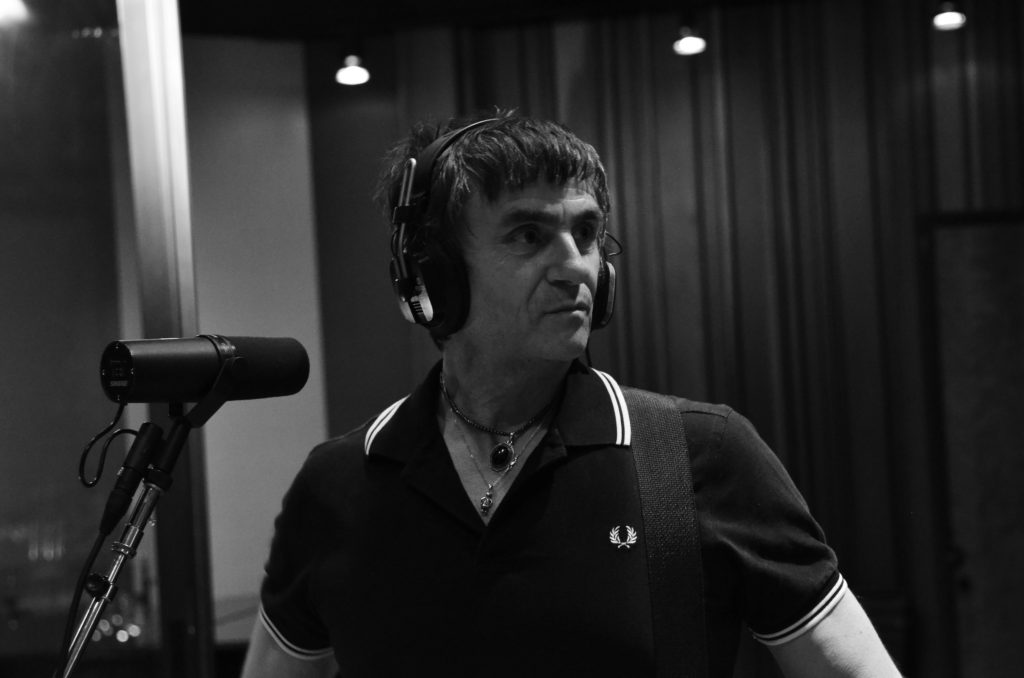
So what spurred you to that point of taking that leap?
I’d left England in the 80s and lived in Portugal and even India for awhile. I went back to England in the 90s, but I was getting on a bit then, people were telling me I was a bit over the hill, and no one wanted to sign me. So I thought it was my last roll of the dice, and I hadn’t been to the States yet, so I thought I’d go to New York. So in 2000, I did, and came to New York with a bag and guitar and a couple of CDs and knocked some doors. The door wasn’t shut in my face as much as it had been in England because it wasn’t as ageist as it was there. But I still wasn’t really happening, so I got on a Greyhound and wanted to see a bit of the country.
I’ve read that you did some busking on those travels, whether it was to put food in your belly or a roof over your head.
Those were the main criteria, certainly, because I had limited funds on me. The only way I could make money was through music, so that was I did for board and lodging. If it paid enough to stay more than one or two nights, I did.
Were there any cities that you really fell in love with along the way during your travels?
I did. I like Nashville for the obvious musical reasons, but sometimes when you’re struggling, you think, “Well, I can still see a couple of more places.” So I did that. New Orleans, I could have done that, definitely. But it was still getting chilly, and just six months before, I’d had back surgery. So whether it was Nashville or New Orleans, they were damper places, and I got affected by it. When I got to L.A., that was magic. It was winter, but it was still warm, so I stayed here.
How did you get from that point to where you are now with owning your own company, BAE Audio? That’s a big stretch of going from having virtually nothing to your name 16 years ago, to this.
It was 2001, and I realized that I had fallen in love with L.A. Not just the weather, but it was the Land of Broken Toys, all the misfits seemed to congregate here, and I fit right in. I made an effort to make a go of it and went to audio school. I was still technically illegal at the time, so I was paying cash, and in order to be able to do that, I had to have three jobs. I was a telemarketer, which I hated. I worked in a bar and slipped from job to job. Thankfully I got a job as a tech at a place where they made pre-amps and discovered that, in a month there, I had learned more there than I did in my time at the audio school. So I dropped out of that, worked full time, and within five years, I had learned enough to start doing some of my own designs. It didn’t happen right away, but I stuck around. By year seven, I felt that I was going to be gone unless my boss was receptive to this. I’d just go out on my own, and that’s what I did. But at the last second, he said he didn’t want to go back to work and asked if I wanted to buy him out. I had put enough money away and gotten married, so we bought him out and formed BAE. We took another five years to establish new products and a new direction. The friends I’d made along the way — from Slash to Josh Homme — were saying, “Hey, you’re a musician, why don’t you play again?” so that’s what I did.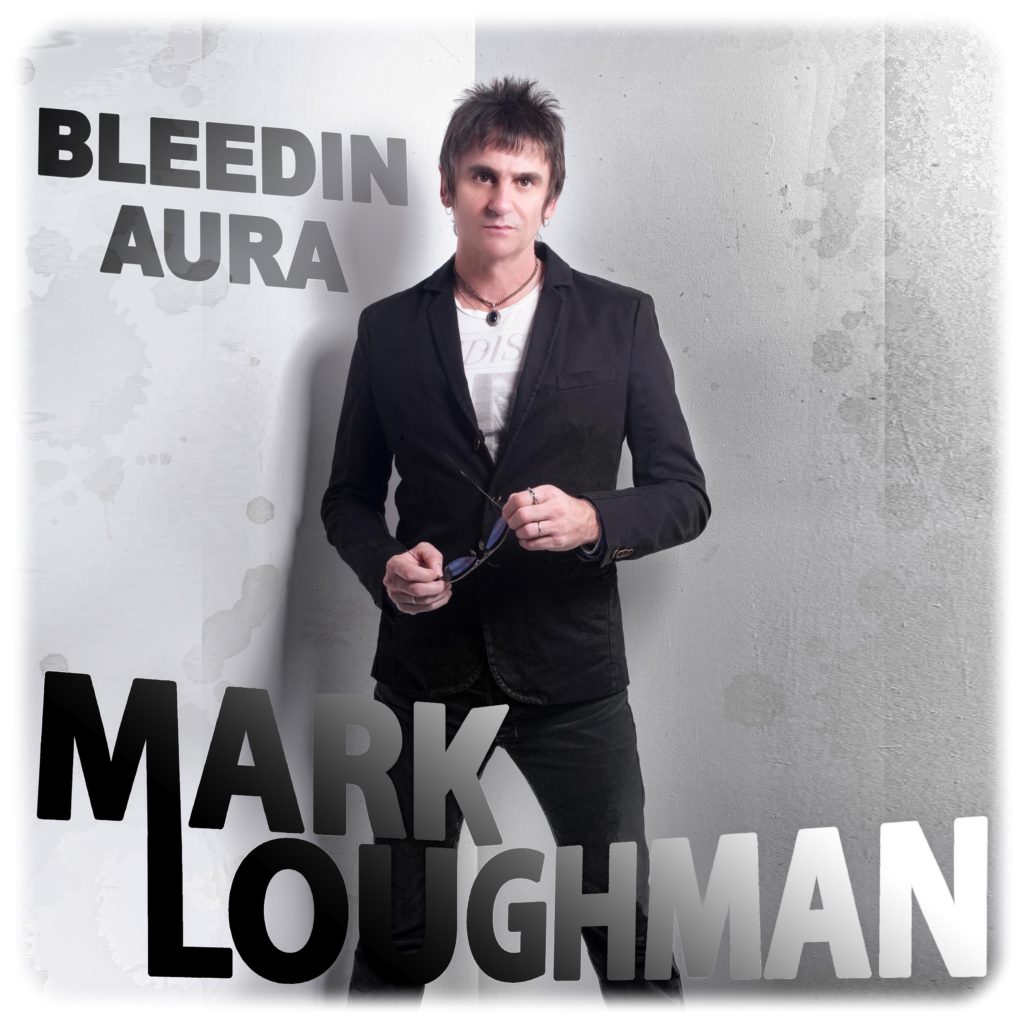
The ensuing album, “Bleeding Aura,” (2016), is loaded with big-name musicians. How did you get involved with the likes of Kenny Aranoff and Slash?
I was fully focused on the business, and we had these clients who I got to know personally through it. They always said they’d do it if I were ever to, but half the time no one means it. So when I did write a couple of songs, I sent them to different people, and every one I sent it to said “Absolutely.” And I knew it just wasn’t their vanity, because these people have reputations, and they don’t just play with anyone. That was very humbling to me, to be able to share some studio time with these guys.
Obviously, your life has changed immensely in the last 16 years, but do you feel any different musically compared to when you first set foot in the U.S.?
I feel a second wind of creativity. I’ve had the business so long, I never anticipated doing what I’m doing now, and the music is really flowing. I’m half way through an album. Two guys from Rod Stewart’s band approached me, which was really flattering. We were chatting after one of their shows and said that we should get together and do something sometime. And we did. We got a couple of songs together a couple of months ago, and another three two weeks ago.
Do you have a timeline as to when you’d like to get more new music to the people?
That’s the beauty of this: I don’t have such a fan base that they’re crying out for me to release something. I still have probably three videos that will be the tail end of “Bleeding Aura.” To tell you the truth, it will be strategized to be able to do what we want when these guys aren’t on tour and we can do some shows. I’m hoping we’ll have something in February or March. But, in this day and age, it doesn’t matter, really. If I’ve got an old song, or a new song, or something I’m collaborating on next week, it can always be a digital single right there and then. That’s the beauty of these times.

